Visiting Ireland soon and wondering if the tap water is safe to drink? Many travelers waste money on bottled water or bring bulky filters out of fear or confusion, when it’s often unnecessary.
As someone who knows Ireland inside and out, I’ll break down exactly what you need to know about drinking water in Ireland, tap, bottled, and filtration options, so you can stay safe and save money.
This quick guide covers water safety, where bottled water might be a better bet, and when (if ever) you actually need a filter.
By the end, you’ll know exactly what to expect from the taps in Ireland, and whether you need to pack a filter or just a reusable bottle.
*This post contains affiliate links, which may include Amazon affiliate links. To read more about affiliate links, please visit my Disclosure Policy page.
Tap Water in Ireland
Tap water in Ireland is generally safe to drink and meets strict EU and Irish water quality standards. In most urban areas, including cities like Dublin, Cork, and Galway, the water is treated and monitored regularly by Irish Water, the national utility responsible for public water supplies.
That said, there are occasional exceptions. Rural areas that rely on private wells or older pipe infrastructure may have issues such as contamination from agriculture, old plumbing, or naturally occurring minerals like iron or manganese. These cases are rare but worth noting if you’re staying off the beaten path.
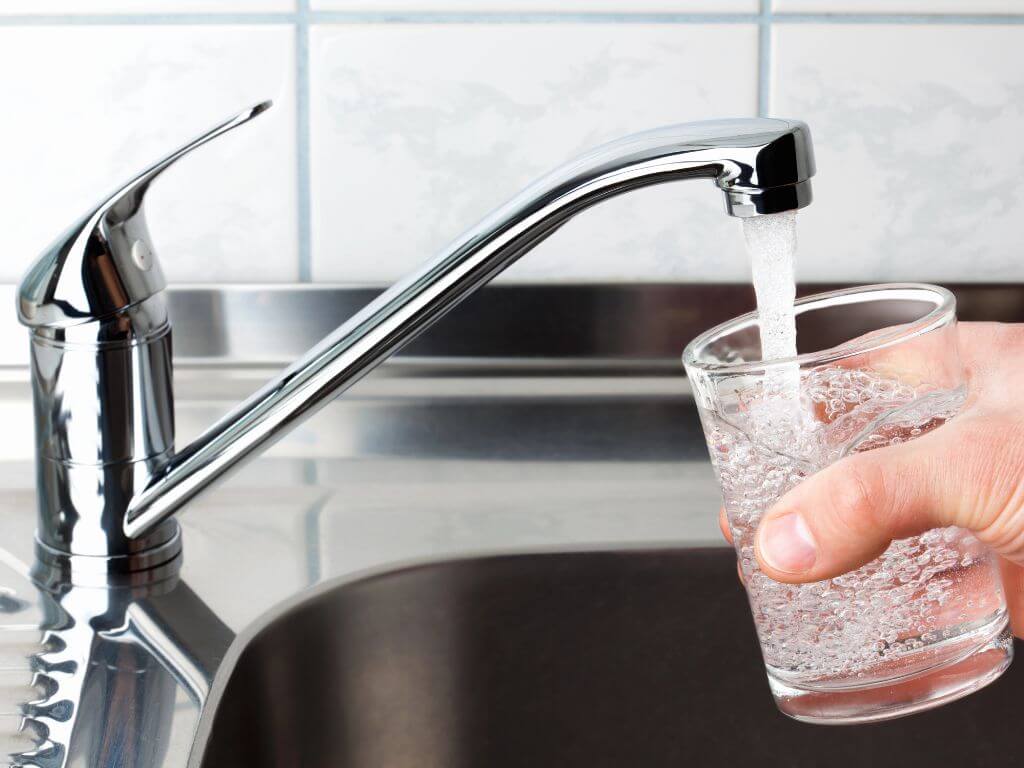
You might also notice a difference in taste depending on where you are. Some areas have “hard” water with higher mineral content, while others have “soft” water. This doesn’t affect safety, but it can change the flavor or how easily your soap lathers.
When my parents lived in County Galway, I couldn’t drink the tap water due to the taste, but I have always filled my glass straight from the tap in our house in Dublin. So yes, even locals can notice a difference in other parts of the country.
If you’re staying in an Airbnb, hotel, or B&B, feel free to ask your host about the tap water quality; most locals drink it without hesitation. If there’s ever a temporary “boil water notice” (usually due to storm damage or pipe issues), it will be clearly communicated by local authorities and signage.
Unless otherwise advised, you can confidently fill your bottle straight from the tap in most parts of Ireland. It’s safe, environmentally friendly, and free.
Remember to bring a reusable bottle such as this one from Amazon.
Bottled Water in Ireland
While tap water is safe to drink across most of Ireland, bottled water is widely available for those who prefer it or are unsure about local water quality, especially in rural areas. You’ll find it in supermarkets, convenience stores, petrol stations, tourist shops, and even vending machines in airports and train stations.
Popular Irish brands include Ballygowan, Tipperary, and Glenpatrick, alongside international options like Evian or Volvic. Still and sparkling varieties are readily available, and most come in 500ml or 2L bottles.
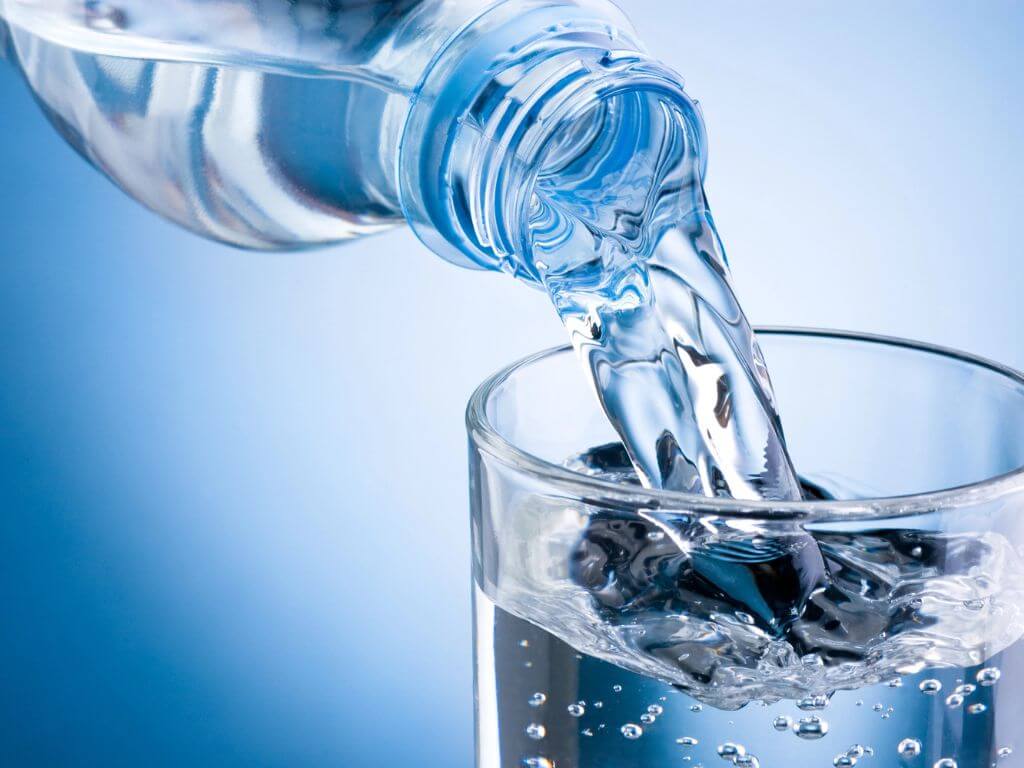
Ireland has also introduced a Deposit Return Scheme (DRS) to reduce plastic waste. As of 2024, when you buy a plastic bottle or aluminium can with the Re-turn logo, you pay a small deposit, usually 15–25 cents, which you get back when you return the empty container to a designated collection point. These machines are now found in most supermarkets and service stations, so keep your bottle and pop it in for a refund. Your refund voucher can then be spent in the shops.
It’s worth noting that bottled water isn’t necessarily cleaner or healthier than what comes from the tap. In many parts of Ireland, you’re essentially paying for convenience, taste preference, or peace of mind. If you’re eco-conscious, a refillable bottle and tap water are the way to go.
Bottled water is easy to find, but unless you’re in an area with questionable water or prefer the taste, you probably don’t need it. Just don’t forget to return the bottle and reclaim your deposit!
Filtered Water in Ireland
Filtered water isn’t a big part of everyday life in Ireland. Unlike parts of Asia or South America, where water quality concerns are more widespread, most Irish households and businesses don’t use filtration systems beyond the standard public treatment.
You’re unlikely to find filtered water stations in hotels, hostels, or cafes either. Ireland’s tap water generally meets high quality standards, making additional filtration unnecessary for most residents.
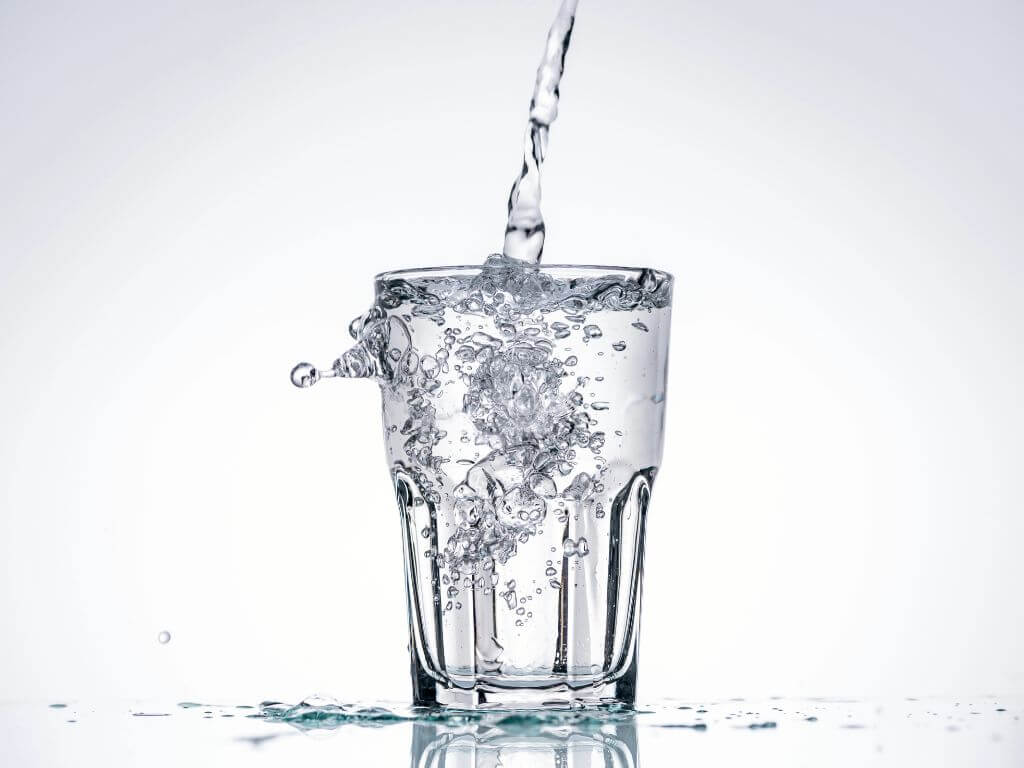
That said, if you’re still unsure or travelling to more rural or remote areas, especially places using private wells or with known mineral content, you might feel more comfortable using a portable filtration solution.
One great option is a water filtration bottle, like those from Grayl or LifeStraw. These bottles are designed for travelers and filter out bacteria, viruses, and chemicals, giving extra peace of mind wherever you go. They’re lightweight, reusable, and ideal if you’re planning hikes, wild camping, or long days on the road.
For the average city-based itinerary, filtered water isn’t a must. But for cautious travelers, outdoor adventurers, or anyone with a sensitive stomach, a portable filter bottle is a practical just-in-case backup.
Filtering isn’t necessary for most visitors, but if you’re heading off-grid or just like being prepared, a filtration bottle can be a handy travel companion.
Final Thoughts: Can You Drink the Tap Water in Ireland?
For most visitors, drinking water in Ireland is a non-issue. Tap water is safe, widely available, and free in nearly all urban areas, so you can confidently fill your bottle and go. Bottled water is easy to find if you prefer the taste or are in a more rural area, and the new deposit return scheme makes it a bit eco-friendlier.
Filtered water isn’t commonly used in Ireland, but a filtration bottle like the Grayl can offer peace of mind if you’re exploring off the beaten path or want to play it extra safe.
In summary, Ireland’s water is clean, safe, and easy to access, so stay hydrated and enjoy the journey!
Before you go, you might also find these articles helpful:
- Is Ireland Expensive to Visit?
- Do You Need Cash in Ireland?
- Costly Ireland Travel Mistakes You Don’t Want to Make!
- Driving in Ireland as a Tourist
- Do I Need a Travel Adapter in Ireland?
- Ways to Save Money in Ireland as a Tourist
- What Language Do They Speak in Ireland?
- Do You Tip or Not in Ireland?
Pin for later!
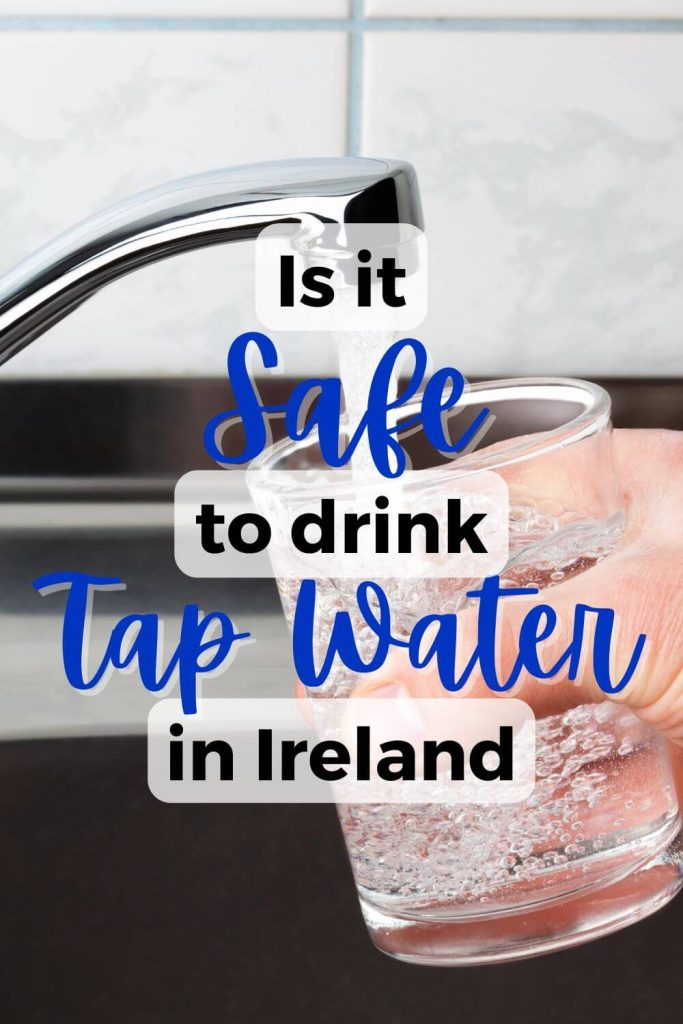
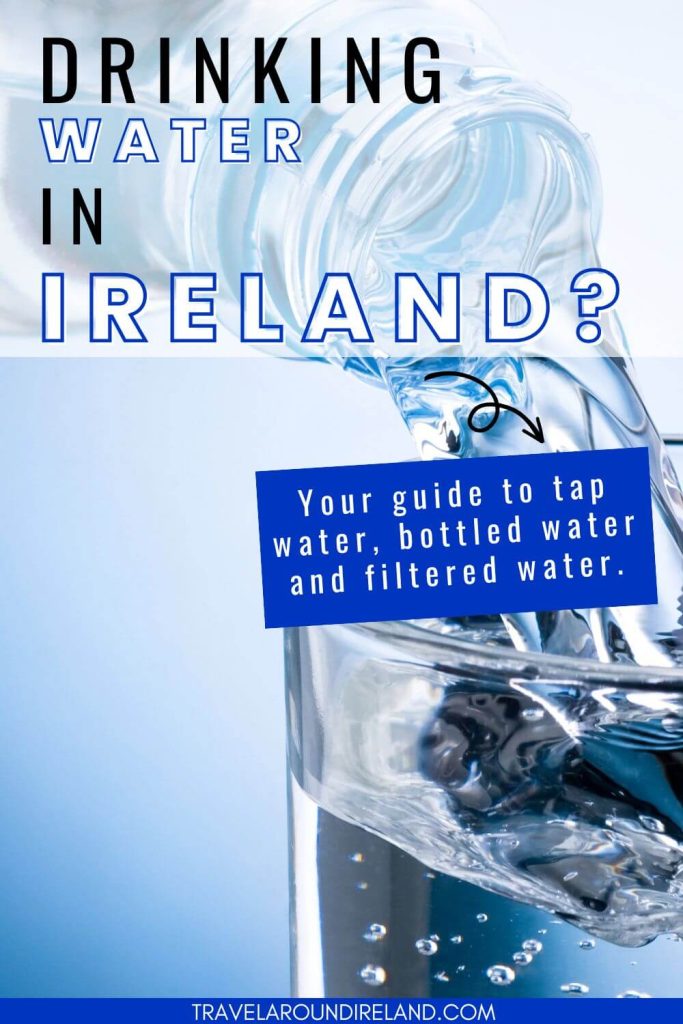
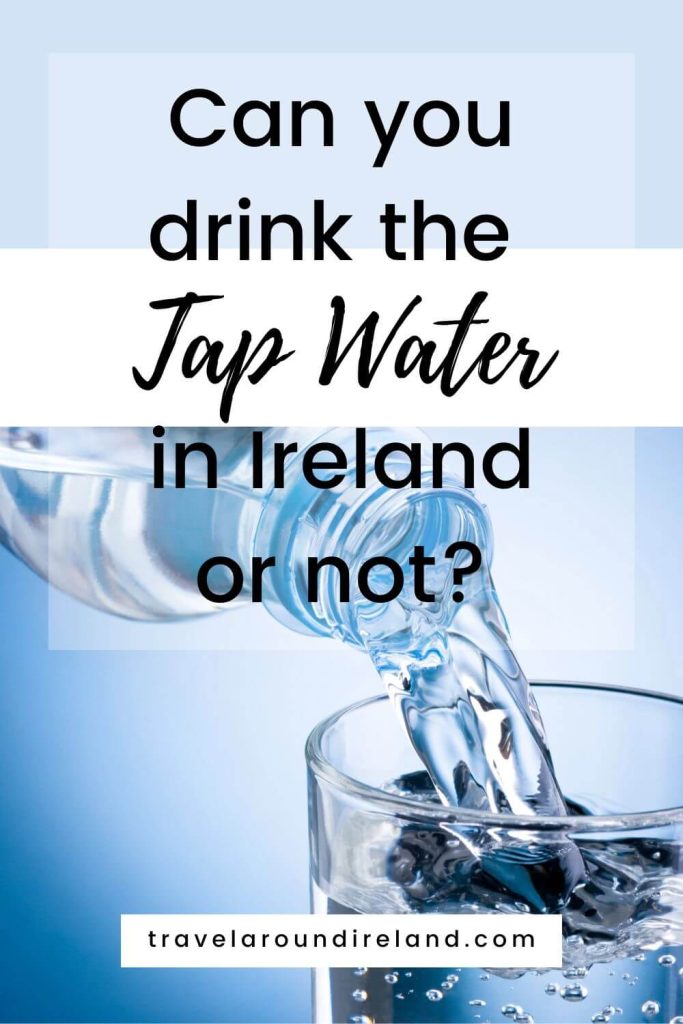
Other Tips for Ireland
WHAT’S THE BEST WAY TO GET AROUND IRELAND?
If you are in a city, use the local public transportation system, especially in the Irish capital. Here is my guide to getting around Dublin.
If you’re going between cities or to smaller towns, you can usually take the train (I buy my tickets through Eurail or RailEurope).
In rural areas, train stations are rarer so you might want to rent a car, which is easy in Ireland (I use Rentalcars or Discovercars).
DO I NEED TRAVEL INSURANCE FOR IRELAND?
It depends. If your travel insurance already covers you in Ireland, then you’re all set. If not, head for VisitorsCoverage for everything travel.
WILL MY PHONE WORK IN IRELAND? WHAT ABOUT MY CHARGER?
You can use your roaming plan in Ireland. If you don’t have one, you can do one of several things (just make sure you have an unlocked phone).
You can order a SIM card before you get to Ireland.
You can buy a SIM card from a shop in Ireland.
You can buy an e-SIM.
WHAT SHOULD I PACK FOR IRELAND?
Here are a few essentials you should NOT leave home without:
Comfortable walking shoes. You’ll be on your feet a lot, and… cobblestones and mud.
Plugs are different in Ireland. So pack a universal travel adapter.
An anti-theft purse (this is the bag I use).
A good rain jacket (for summer) or coat (for winter) because rain is frequent in Ireland. It isn’t called the Emerald Isle for nothing!
WHAT’S THE BEST WAY TO BOOK A PLACE TO STAY IN IRELAND?
I use booking.com for my own travels around Ireland. Listings are extensive, including apartments, and cancellation policies generous.
